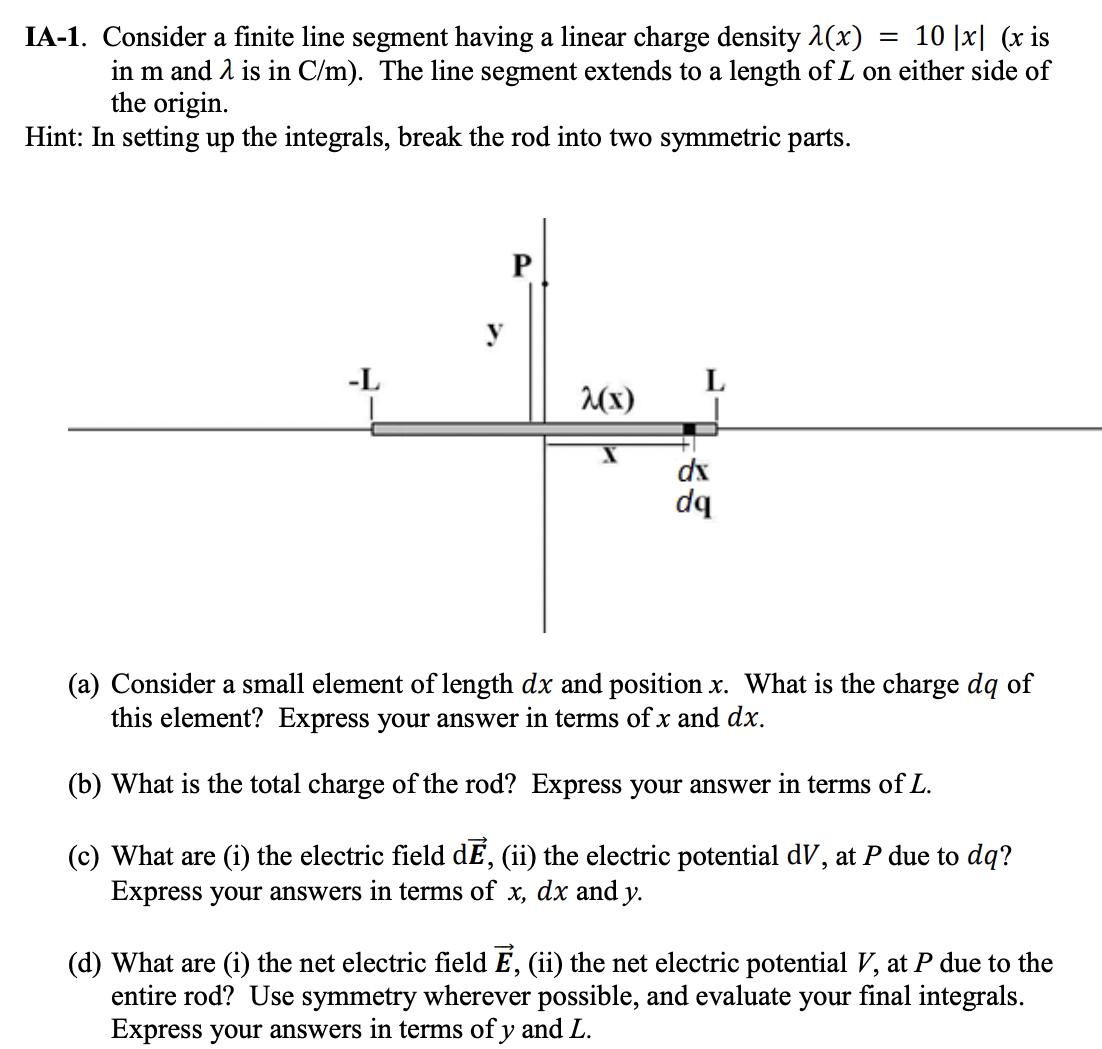IA-1. Consider a finite line segment having a linear charge density λ(x) = 10|x| (x is in m and λ is in C/m ). The line segment extends to a length of L on either side of the origin. Hint: In setting up the integrals, break the rod into two symmetric parts. (a) Consider a small element of length dx and position x. What is the charge dq of this element? Express your answer in terms of x and dx. (b) What is the total charge of the rod? Express your answer in terms of L. (c) What are (i) the electric field dE→, (ii) the electric potential dV, at P due to dq ? Express your answers in terms of x, dx and y. (d) What are (i) the net electric field E→, (ii) the net electric potential V, at P due to the entire rod? Use symmetry wherever possible, and evaluate your final integrals. Express your answers in terms of y and L.
